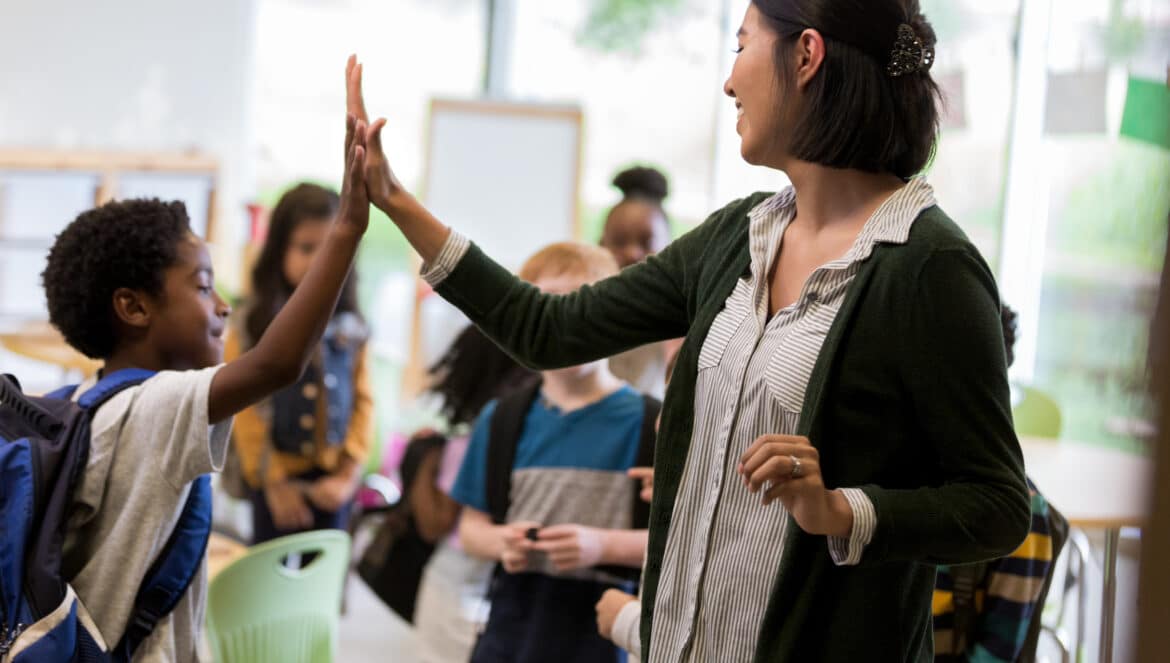Table of Contents
Social Emotional Learning (SEL) has proven to be a critical part of our K-12 classrooms. It empowers students to understand better and identify their emotions, develop empathy, increase self-control, and manage stress. It’s no surprise that the vast majority of teachers continue to agree that students increasingly need social and emotional support now more than ever.
However, according to a recent Houghton Mifflin Harcourt Educator Confidence Report, “seven percent of educators were prepared to address the social and emotional needs of students during the COVID-19 disruption, and only 10 percent reported SEL was incorporated to a very significant or significant degree into distance learning programs.”
While this challenges current teachers and schools, how can teaching colleges best prepare next-generation educators to incorporate SEL into their future classrooms? At Western Governors University’s (WGU) School of Education, we value developing SEL skills with our faculty, students, and aspiring teachers who will need the tools and expertise to focus on SEL with young learners. As our nation’s schools try to refocus their priorities to include a robust SEL practice, here are some ways our School of Education is preparing the teachers of tomorrow:
Implementing SEL Self-Awareness Practices
At WGU, we have developed an SEL skills framework aligned with the CASEL 5 Model as a necessary resource for faculty training tomorrow’s teachers. We intentionally integrate elements of the University of Pennsylvania Positive Psychology Center’s resilience and wellbeing program into our modeling, coaching, and teaching SEL skills to aspiring teachers. One application of this approach is to teach aspiring educators to implement simple self-awareness practices early in the school day. This is a great way to help students start their day feeling connected, respected, and valued.
Hilary Simon, WGU’s Senior Manager for Social Emotional Learning, explains why this is important: “Having brief feelings check-in at the beginning of every school day provides insight about the class’s readiness. At the same time, it builds students’ emotional awareness, paving the way for students to do their best for the rest of the day. That’s a win for everyone involved.”
Using SEL to Promote Self-Management
Self-management skills are critical for getting things done and taking control of our lives. Aspiring teachers must recognize the importance of young learners taking time to reflect and regulate if they are challenged or troubled. For K-12 students, this means that it’s vital that their teachers employ strategies that promote self-management. Integrating reflective practices such as journaling and conflict resolution processes within behavior management routines empower students to recognize their thoughts, solve problems and take productive action.
WGU recognizes that our faculty must successfully navigate their challenges and best meet our student’s social and emotional needs. We teach faculty how to catch themselves when stuck in the negative talk – to challenge themselves and make course corrections. Faculty members model, coach, and teach those same strategies to their students to overcome difficult situations that they might encounter.
Prompt Social Skills for Collaboration
Social awareness involves the ability to understand and empathize with others, particularly with people from different backgrounds than one’s own. When it comes to situations involving collaboration and teamwork for K-12 students, building positive relationships, especially with diverse individuals and groups, involves various methods such as active listening, communication, resisting pressure, and seeking out and offering help.
“These are all critical skills students will need when working in collaborative working groups,” said Simon. “Teachers can prompt students to use the skills before a group activity, recognize when students are using them during the activity, and invite students to reflect on opportunities for growth afterward.” Despite a remote environment, WGU faculty and students engage in the ongoing development of their social skills as well – for example, faculty participate in professional learning communities, and students attend virtual study halls.
In Conclusion
SEL is lifelong learning. At WGU, we’re honoring this notion by being a founding partner in an emerging national Coalition for Healthy Learning with other institutions that are also passionate about the positive impact of SEL. When teaching colleges intentionally engage in social and emotional skill development, we are better equipped to transfer those skills to our young learners. By anticipating skills for success and developing them through instruction and repeated practice, we set everyone up for success. Teaching is very much a rewarding profession. With effective SEL tools and strategies, aspiring educators will carve out a better and brighter path for their students in the classroom – and beyond.

